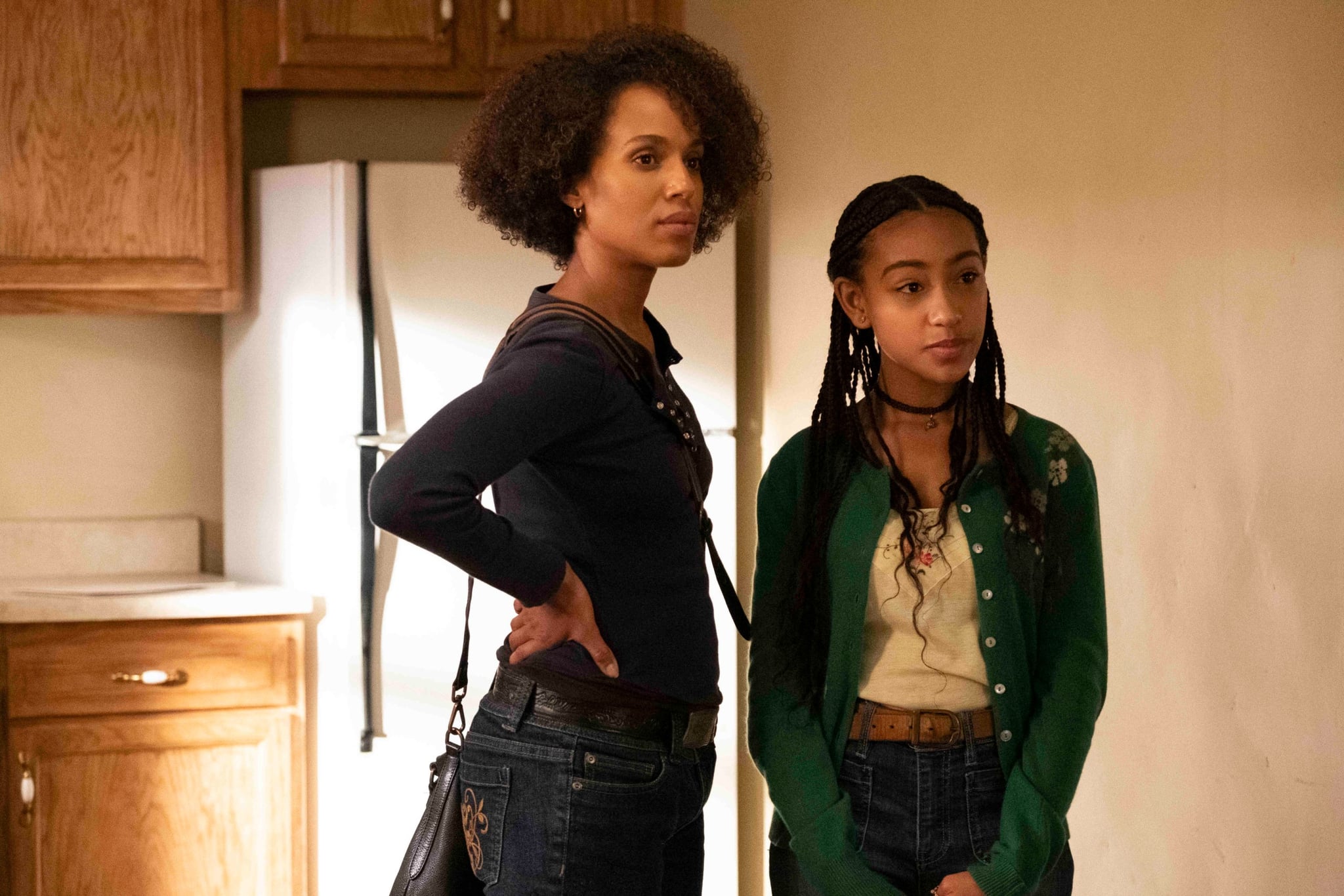
Among the 2020 Emmy nominations [1] is a quiet victory for women in Hollywood: all five of the shows nominated for best limited series (Little Fires Everywhere, Mrs. America, Unbelievable, Unorthodox, and Watchmen) are stories centreing women [2]. This category may not be as shiny or buzzy as the bigger names, but this major milestone signals a slow but steady wave of change: women's stories are being recognised as worthy [3] in the mainstream, not tossed aside as an inherently lesser genre.
The mere presence of women as the leads of the five Emmy-nominated limited series isn't the biggest victory, though: it's the range of stories being told. Among the nominees are three true stories (or, more accurately, stories based on true stories), a superhero allegory for contemporary America, and a twisty tale of race and class in the suburbs. The women in these stories cover a range of ages, socioeconomic situations, careers, and races; they are all complicated and messy and well-rounded women. They represent different corners of the American woman's experience: women fighting for progress, conservative women, working class women, women who have survived abuse, Jewish women, Black women — the list goes on.
"We're love interests, sisters, mothers, servants in the prestige shows about bad men, but we're rarely the bad women (or good women) whose own stories get equal acclaim."
For too long, we've been told as women that our stories are "niche." Comedies that centre women are, almost without fail, relegated to the "chick flick" label while dramas featuring women often focus on their suffering. To be sure, there's a complicated set of questions behind this. Are women getting the same opportunities to write their own stories [4]? Are they getting the same budgets and marketing? Are they being asked to only write what old-school execs think "will sell"? Is there a bias that shelves women's stories automatically as a lesser sub-genre? All of these are valid questions with messy answers, and they all play into the dearth of recognition for women's stories when they do finally get made. We're love interests, sisters, mothers, servants in the prestige shows about bad men, but we're rarely the bad women (or good women) whose own stories get equal acclaim.
The Emmys limited series nominees also represent something else important: the decline of "prestige TV" and its replacement with a newer definition that's more open to different stories and points of view. Prestige TV, in its standard form, has been gritty-ish dramas focussed mostly on stoic, morally questionable men doing morally questionable things, all filmed with a dark colour palette and filled with quasi-philosophical dialogue. Think Breaking Bad, Mad Men, True Detective, Sons of Anarchy, Better Call Saul — you get the picture. But in most of these, women are relegated to side roles, less rich roles, stereotypical roles, or roles that position them as "obstacles" to the men getting what they want.

As prestige TV declines in its old definition, what's arrived in its stead is an exploration of what these kinds of stories might look like if they were told from the perspectives of the marginalized: people who aren't men, people who aren't white, people who aren't cisgender and/or straight. These stories with moral quandaries and complicated decisions become even more interesting and compelling when the layers of their characters' identities and experiences in the world are influencing every move and every motivation. They're the same, but different, and it's important that women get the chance to be the messy, complicated, sometimes unlikeable antiheroes too.
Most importantly, this year's limited series nominees often tell specifically feminine stories, without them being relegated to second-class "women's fiction" status. Unbelievable [5] is about a young woman's assault, the patriarchal system that punishes her [6] for being an imperfect victim, and the women who uncover the truth. Unorthodox follows a young woman escaping an ultra-conservative religious community. Mrs. America follows the clash between the feminist movement and its opponents [7], many of whom were women too. Watchmen [8] remixes the superhero genre to place a Black woman at the centre of a vigilante tale set in an America rocked by uprisings over racism [9]. You can't separate these characters' gender from their experiences, but their gender doesn't force them into stereotypes.
This isn't to say the Emmys are perfect this year; there are many more deserving stories that have been snubbed too [10]. Going forward, we can hope for more stories of compelling, complicated women — and hope that they, too, will get the recognition they deserve.